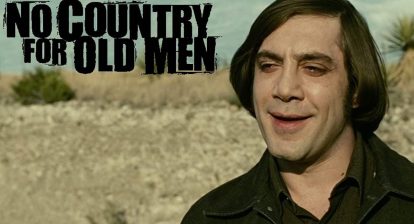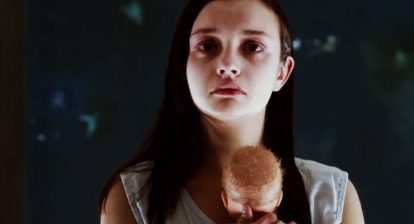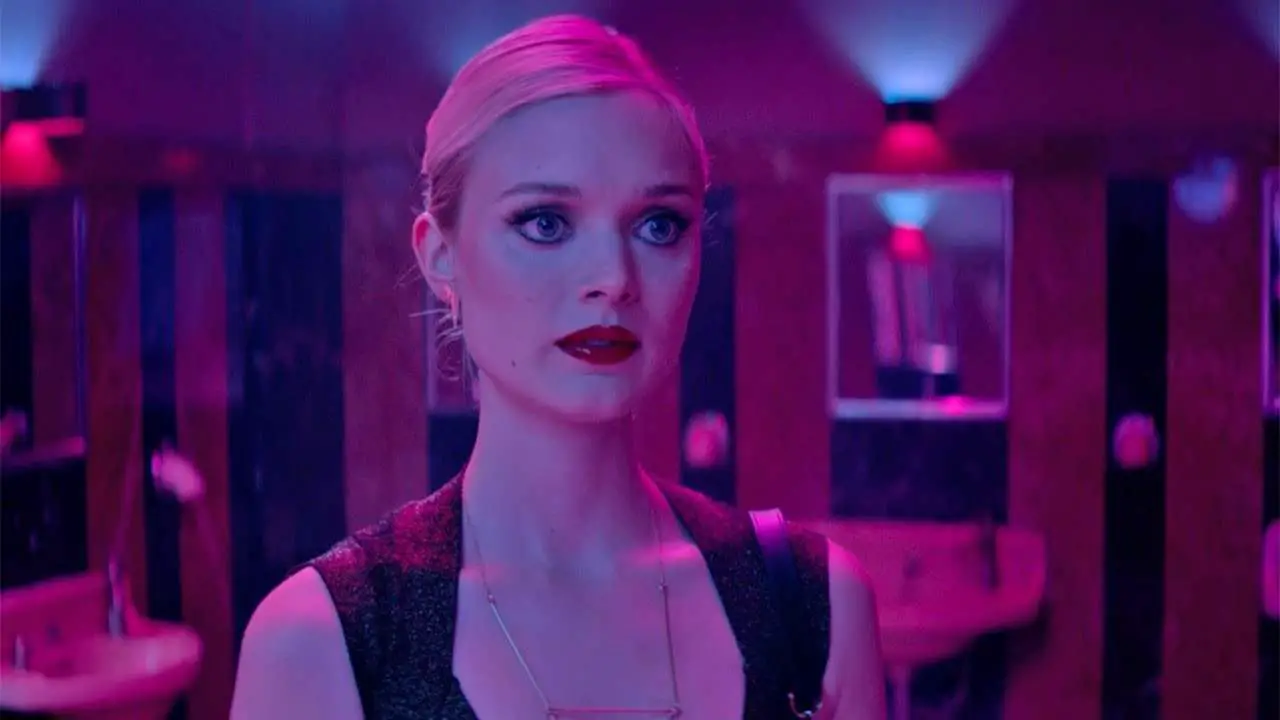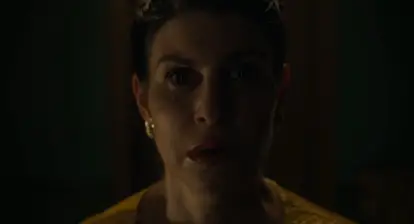Horror is evolving as a genre. Although your local multiplex is still peppered with the usual contenders, look a bit closer and you’ll find the latest drama, thriller, or crime offering is closer to horror than you might expect. In this bi-weekly series, Joey Keogh presents a film not generally classified as horror and argues why it exhibits the qualities of a great flight flick, and therefore deserves the attention of fans as an example of Not Quite Horror. This week, it’s high society shocker The Riot Club.
One of the biggest news stories this year, in the UK at least, came from the allegation that Prime Minister David Cameron had inserted his genitals into the mouth of a dead pig as part of a college initiation. Cameron was a member of the infamous Bullingdon Club, a secret society based out of Oxford University, and the stunt is said to have been part of his rush shenanigans.
Bullingdon is the society upon which the titular (fictional) club in The Riot Club is based. And, suffice to say, regardless of whether Cameron did interfere with some poor swine, it’s likely he did a hell of a lot worse–if the flick, adapted from Laura Wade’s play Posh by the writer herself, is anything to go by.
Allegedly based on real events, the film tells the story of a group of super-rich miscreants who literally tear apart an establishment during their annual dinner party, leaving a mess of destruction in their wake. We meet the club through two newbies; the impressionable, kind-hearted Miles (Max Irons) and dead-eyed bad apple Alistair (Sam Claflin).

Claflin, a wet, cutie-pie sort prior to this point, who starred in weepies such as Love, Rosie, plays shockingly against type as the ghastly Alistair while Douglas Booth, who once played Miley Cyrus’s paramour in a toothless teen comedy, is a disgustingly chauvinistic player who quite literally tells a hooker to get on her knees because it’s the only thing for which she’s any use.
There was some discussion, upon the film’s initial release, about whether The Riot Club served as a cautionary tale or a glorification of the kind of lavish lifestyle to which all of us have, at some point, aspired. Although it does often seem like a bit of frothy fun and games, at least in the beginning, there’s an edge that ensures we know something isn’t quite right here.
Miles starts turning into a different person almost immediately upon acceptance into the club, chastising his “normal” girlfriend Lauren (Holliday Grainger) for apparently being jealous of him. Along with a kindly pub landlord and his daughter, Lauren is the only non-rich person featured in the movie. And it is she, along with these other lowly types, who ends up suffering the most.
A dinner at a rural pub is the centre-piece of The Riot Club, as it was in Posh, and it’s here where the movie’s true, blackened Not Quite Horror soul is revealed. A lengthy, stomach-churning sequence sees the lads terrorise their host before beating the living hell out of him and trashing his place of business to near unfixable standards.
It’s a devastating, damning indictment of the rich and powerful that, whether based on fact or not, serves to highlight the massive chasm between rich and poor that is evidently getting worse by the day (Bullingdon allegedly pulled similar shenanigans as recently as 2010). This is particularly evident in Alistair’s rallying cry to his buddies: “I’m sick to f**king death of poor people!”.
 A manipulation, of course, but his speech breeds on deep-seated ideas already festering inside the other rioters heads, ideas that manifest themselves in moments such as the aforementioned exchange with the prostitute, or when poor Lauren is offered three years’ worth of tuition fees if she sucks off everybody at the table.
A manipulation, of course, but his speech breeds on deep-seated ideas already festering inside the other rioters heads, ideas that manifest themselves in moments such as the aforementioned exchange with the prostitute, or when poor Lauren is offered three years’ worth of tuition fees if she sucks off everybody at the table.
As Alistair intones gravely, “It’s important we get what we want” (this actually could’ve been the tag-line for the film, but “Filthy Rich. Spoilt Rotten” is probably a bit more clever). As sickening as the display with the landlord is, the boys’ interactions with females are disturbing. These are the moments in which their unshakeable sense of entitlement is particularly evident, and frighteningly so.
Throughout the film, the message is that these guys don’t value anything. And, when things go wrong for them, they inevitably get away with it and move on. In the end, although Alistair takes the fall, we learn that his life hasn’t been adversely affected and, if anything, he’s on his way to a career and, if not happiness, contentment.
Miles, on the other hand, is the only one who really learns anything and he ends up losing Lauren in the process. He walks away guilt-ridden while Alistair can’t help but smile. As a result, the scariest thing about The Riot Club is how easily the club-members get away with everything and return to their normal lives as if nothing has really happened, while “normal people” are left to suffer the consequences of their actions–a terrifyingly realistic take if ever there was one.






